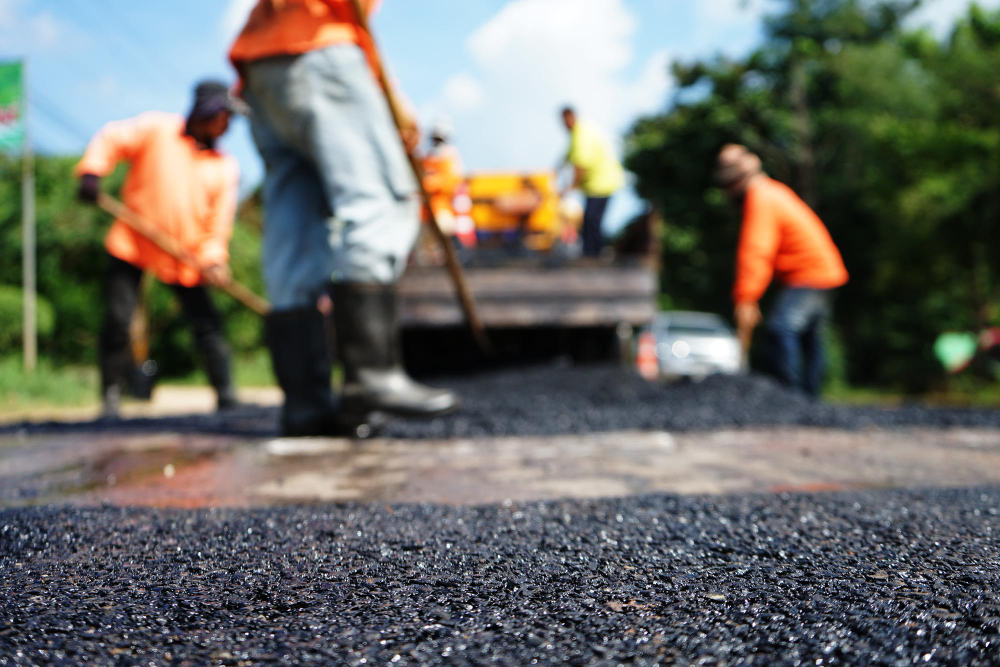
Driveways are more than just a path to your garage; they are an important part of your home's curb appeal and functionality. Over time, factors like weather, usage, and lack of maintenance can lead to wear and tear on your driveway. This is where resurfacing comes into play. But when is it the right time to resurface your driveway? If you reside in Orlando, FL, and need help with asphalt paving, Florida Sealcoating is here to guide you.
Driveway resurfacing involves applying a new layer of asphalt over the existing surface to restore its appearance and functionality. This process can extend the life of your driveway without the need for a complete replacement. It's an effective way to address minor cracks, potholes, and other surface imperfections.
One of the most obvious signs that your driveway needs resurfacing is the presence of cracks and potholes. Small cracks can eventually turn into larger problems if not addressed. Potholes, on the other hand, can cause serious damage to vehicles and pose safety risks.
Water pooling on your driveway is a sign of drainage issues. Over time, standing water can weaken the asphalt, leading to more extensive damage. Resurfacing can help improve drainage and prevent future water-related problems.
Exposure to the sun's UV rays can cause your asphalt driveway to fade and lose its original color. While this is often a cosmetic issue, it can also indicate that the asphalt is becoming brittle and more susceptible to damage. Resurfacing can restore the driveway's appearance and protect it from further UV damage.
An uneven surface can be caused by settling, heavy vehicle use, or poor installation. This can make your driveway look unattractive and may even cause tripping hazards. Resurfacing can level out the surface and provide a smooth, even finish.
If your driveway is more than 10-15 years old, it may be time to consider resurfacing. Asphalt driveways have a limited lifespan, and regular maintenance can only extend it so far. Resurfacing can give your driveway a new lease on life and delay the need for a complete replacement.
Resurfacing is significantly less expensive than completely replacing your driveway. It allows you to address surface issues without the high costs associated with full reconstruction.
A freshly resurfaced driveway can greatly enhance the appearance of your home. It gives your property a well-maintained look and can even increase its value.
By addressing surface issues and improving the overall condition of your driveway, resurfacing can extend its lifespan by several years. This means you can delay the need for a full replacement.
Resurfacing can eliminate tripping hazards, potholes, and other safety concerns. This makes your driveway safer for pedestrians and vehicles alike.
Resurfacing uses fewer resources compared to a full replacement. This makes it a more environmentally friendly option, as it reduces waste and the need for new materials.
The first step in the resurfacing process is to inspect and assess the condition of your driveway. This helps identify any underlying issues that need to be addressed before resurfacing.
The driveway must be thoroughly cleaned to remove debris, dirt, and vegetation. This ensures proper adhesion of the new asphalt layer. Any existing cracks and potholes are also repaired at this stage.
A new layer of asphalt is applied over the existing driveway. This is done using specialized equipment to ensure a smooth and even finish. The thickness of the new layer may vary depending on the condition of the original surface.
The newly applied asphalt is compacted to ensure durability and longevity. This also helps achieve a smooth and uniform surface. Once compacted, the driveway is left to cure and harden.
Keep your driveway clean by removing debris, leaves, and dirt. Regular cleaning can prevent surface damage and maintain the appearance of your driveway.
Sealcoating adds an extra layer of protection to your resurfaced driveway. It helps prevent damage from UV rays, water, and chemicals. Consider sealcoating your driveway every few years.
Even with a resurfaced driveway, cracks can still occur. Address small cracks promptly to prevent them from expanding and causing more extensive damage.
Avoid parking heavy vehicles or equipment on your driveway for extended periods. Heavy loads can cause stress and damage to the asphalt surface.
Ensure that your driveway has proper drainage to prevent water from pooling. Standing water can weaken the asphalt and lead to further damage.
When it comes to resurfacing your driveway, it's essential to choose a professional paving service. Here are some tips:
Look for a paving company with years of experience and expertise in asphalt resurfacing. Experienced professionals can assess your driveway's condition accurately and provide the best solutions.
Ensure that the paving company uses high-quality materials for resurfacing. The quality of the asphalt and other materials used can significantly impact the durability and appearance of your driveway.
Check customer reviews and testimonials to gauge the reputation of the paving company. Positive reviews indicate satisfied customers and reliable service.
Choose a paving service that offers free estimates. This allows you to get an idea of the cost involved and make an informed decision.
Ensure that the paving company is licensed and insured. This protects you from liability in case of any accidents or damage during the resurfacing process.
Resurfacing your driveway is a cost-effective way to restore its appearance and functionality. By addressing surface issues and improving the overall condition of your driveway, you can extend its lifespan and enhance your home's curb appeal. If you need help with asphalt paving in Orlando, FL, contact Florida Sealcoating today for a free estimate. Our team of experts is here to provide top-notch resurfacing services to meet your needs.